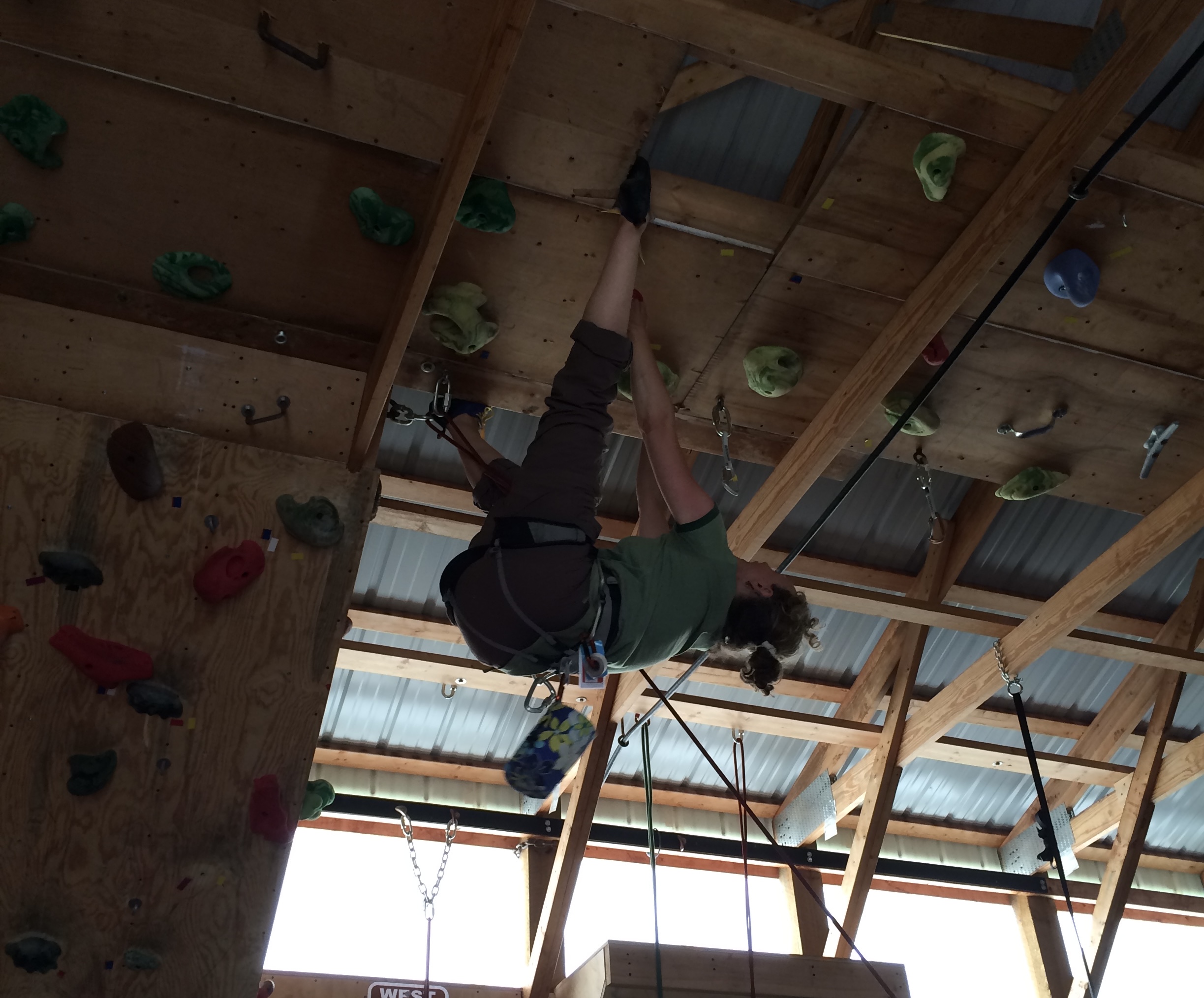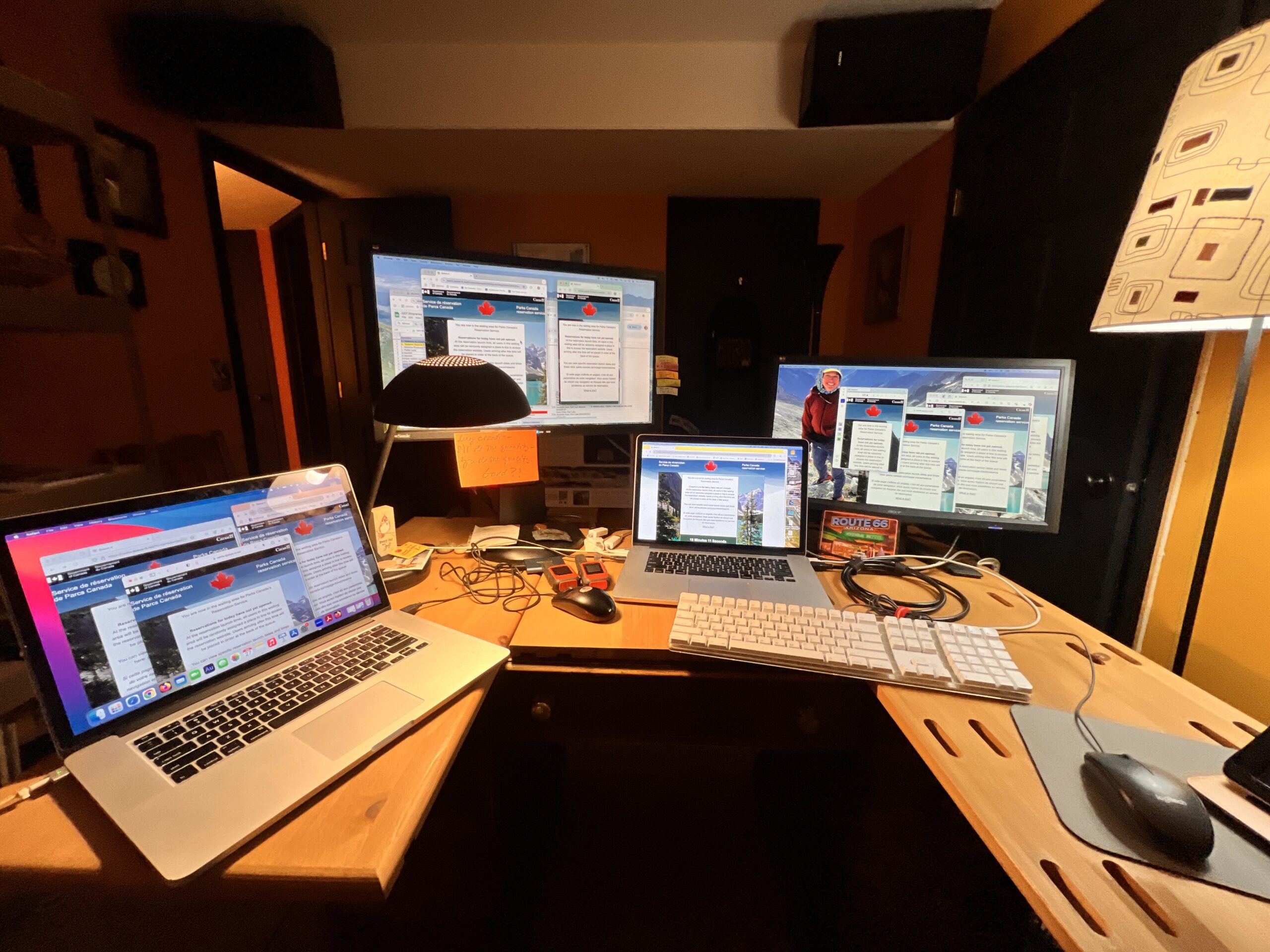
Climbing the Mountain of Camping Permits
Yesterday morning, I got online at 7:30 am sharp in order to receive a random number in a queue, so that I could reserve campsites in Canadian National Parks.
No, I am not planning to camp in Canada now! I’ll use these sites in July and August when I thru-hike the nearly 800-mile Great Divide Trail that crosses Alberta and British Columbia’s Rocky Mountains.
I know, that does seem like a long way off, but I need to reserve all of my camping sites ahead of time. And since the lottery opens in January, those reservations need to happen right now.
And why? Because camping in the Canadian Rockies is so popular, campsite reservations go fast, at lighting speed and within minutes!
Let’s just say, it was a very stressful morning.
For context, I have performed as a professional musician under the direction of Leonard Bernstein and that was nothing compared to the stress I felt yesterday!
First, I watched a countdown-timer taking me to the moment where I’d receive my randomly chosen place in line.
Would I be number 10 or number 10,000?
I got number 597!
Sounds high, but it was only a matter of seconds before my screen opened to the reservation page. Like a cheetah on the hunt, I moved with stealth and speed, ensuring I hadn’t picked the wrong dates before clicking BUY to nab four nearly impossible-to-reserve sites in Banff and Yoho.
Success!
Stress and the Body
Yesterday’s ordeal, which raised my heart rate, pumped adrenaline through my body and made my mouth go dry, took approximately thirty minutes. But even though I was left elated with my success, iI was also utterly exhausted.
The hike itself is going to have myriad challenges from weather, terrain, wild animals and river crossings, but this exercise in planning turned out to be its own kind of mountain climb.
And that got me thinking about stress.
Most of us know that chronic stress is linked to major health problems including high blood pressure, heart disease, and a weakened immune system.
If I needed to enter a lottery like the Parks Canada online reservation system every day, the pressure would show up in my body – aches and pains, an inability to focus and lethargy – plus likely a foul mood.
Studies show, though, that acute stress is actually quite the opposite and can be good for you.
Let me explain. In a recent study at Cal Berkeley, scientists found that rats exposed to stress may not feel all that great in the moment. But the stress caused nerve proliferation which oddly benefited them two to three weeks after the fact.
These stressed-out rats were stronger, more resilient and able to solve problems like finding their way out of mazes far beyond the purposes of the experiment.

Load Theory
And this idea of extreme focus on problem solving – like moving smoothly and quickly to click all the right buttons and reserve campsites – goes to the idea of “Load Theory.”
Nilli Lavie, a psychologist from the University College London, coined the term which posits that there is a limit to how much information from the outside world our brains can process at any one time.
But – and here’s the exciting part – once all of the processing ‘slots’ in our brain are filled, the brain’s attention system kicks in to decide what is most important in that moment.
So a little chaos, some distractions and even stress can oftentimes force us to be hyper-focused as the brain pours its energy into what matters.
It’s as if the brain is telling us that vacation time is over and school is in session and yes, you do need to know this for the test!
Spinning Plates
So back to Leonard Bernstein for just a moment. He was one of the most successful all-around musicians who ever lived. He was a conductor, a pianist, a composer and an educator – and he was good at everything.
Even so, I’m sure his life was stressful. So maybe it’s no surprise he subscribed to load theory writing,
“To achieve great things, two things are needed: a plan, and not quite enough time.”
Sometimes, it’s not the stress itself that has us stressed out, but how we perceive stress. And that perception can determine if stress will ultimately be good or bad for us.
Admittedly, all of us can feel overwhelmed and should give ourselves a needed break for self-care. But bursts of stress that put us into the fight or flight zone can help build our strength and resilience in body, mind and spirit.


2 Responses
Excellent, Alison! My favorite acute stress is performing in an orchestra during our concerts. The fight or flight hormones are in full display, which gives me a sense of heightened awareness. The post-performance satisfaction is well worth the stress.
It is a rush to perform! But an art in itself dealing with the stress. I love that you sat all alone to start the Wayzata Ode to Joy Flash Mob. You looked absolutely in control!